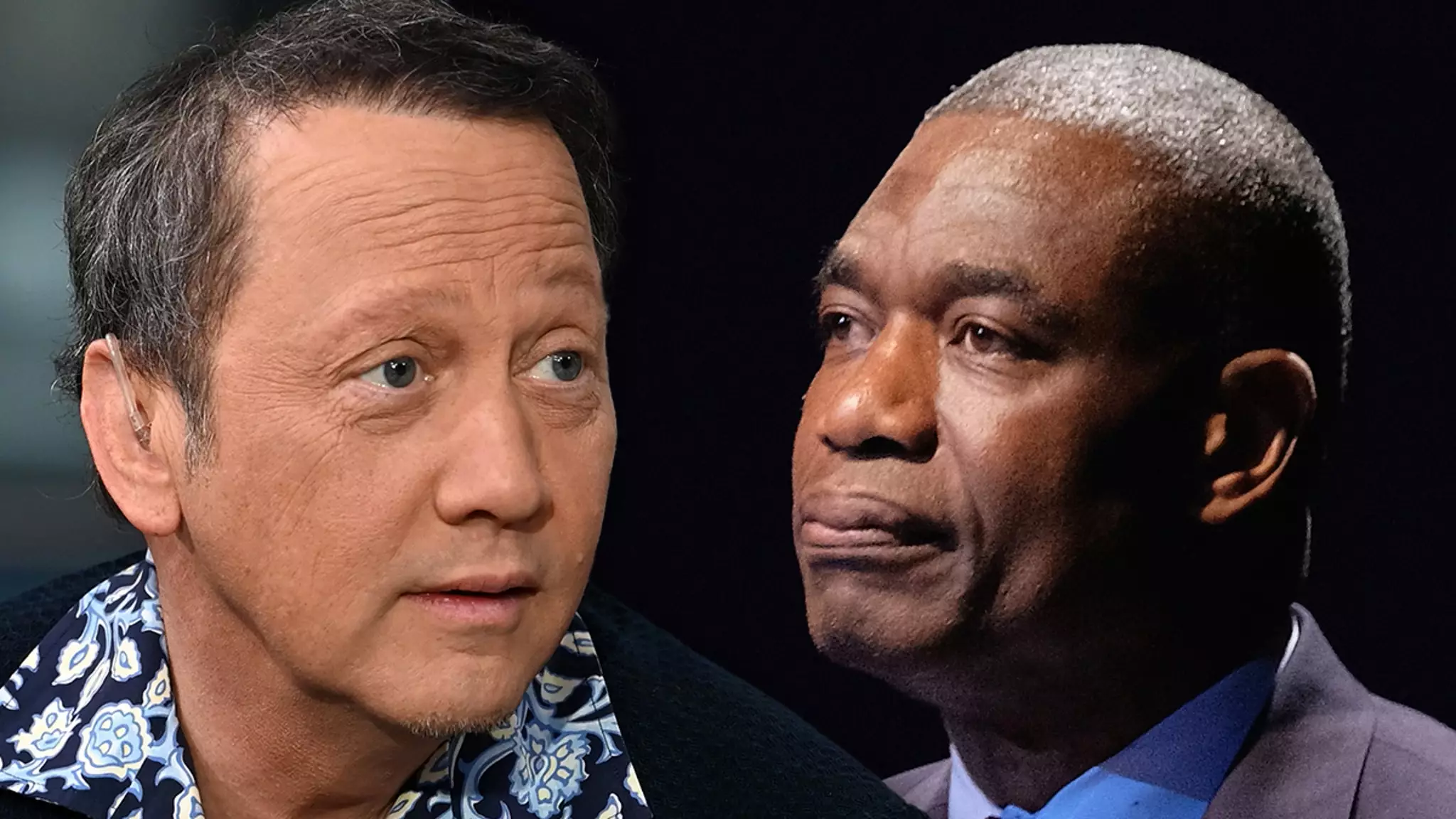In the age of social media, heartfelt tributes can quickly devolve into platforms for personal agendas, as was witnessed with comedian Rob Schneider’s recent reaction to the passing of NBA legend Dikembe Mutombo. While expressing condolences should be a straightforward act of respect, Schneider’s tribute veered off course into the realm of anti-vaccine rhetoric, raising important questions about the ethics of using tragedy to promote personal beliefs.
The comedian’s initial message began with the conventional “Rest in Peace,” a phrase meant to honor the deceased. However, he followed up with statements linking Mutombo’s vaccination status to his premature death, which left many reeling. Though Schneider is known for his outspoken views, his decision to interject controversial claims into a moment of mourning sparked outrage and disappointment among fans and onlookers alike. Many felt that the timing and context of his remarks overshadowed the genuine mourning of a beloved figure.
In the immediate aftermath of Schneider’s post, the public response was swift and overwhelmingly negative. Critics took to social media to express their dismay, with many highlighting the absurdity of suggesting a causal link between a vaccine and the tragic reality of brain cancer. This outcry underscores the significant responsibility that public figures carry when they engage in public discourse, particularly on health-related topics.
With veterans from various fields like sports and entertainment often wielding considerable influence, their opinions can easily sway public perception. Schneider’s comments about Mutombo’s vaccine status can be seen as an exploitation of a moment meant for remembrance, transforming grief into a battleground for conspiracy theories surrounding vaccinations. It is a disheartening reminder that compassionate communications can sometimes be overshadowed by divisive agendas.
Schneider’s history of controversial opinions has made him a polarizing figure, often attracting harsh criticisms for his views that many find distasteful or misguided. The fact that his daughter, singer Elle King, publicly voiced her discontent with her father also adds another layer to the narrative, highlighting the personal toll that public figures can face. It reveals the complex dynamics within families who have to navigate the fallout of a parent’s controversial stances.
Yet, it also introduces a broader discussion about how public figures might use their platform. Instead of fostering awareness or unity, Schneider’s approach has often led to dissension. It begs the question: Should influential figures be more mindful of their public statements, especially during moments meant to resonate with shared human experience?
Ultimately, Schneider’s actions serve as a cautionary tale about the intersection of personal belief systems, public mourning, and responsibility. Tributes should serve to honor legacies rather than detract from them, prompting both celebrities and the public to rethink their approach to sensitive issues. Moving forward, it is vital for individuals—especially those in the spotlight—to navigate these conversations with care, ensuring that their messages contribute more positively to societal dialogue rather than exacerbate divisions during times of grief.

